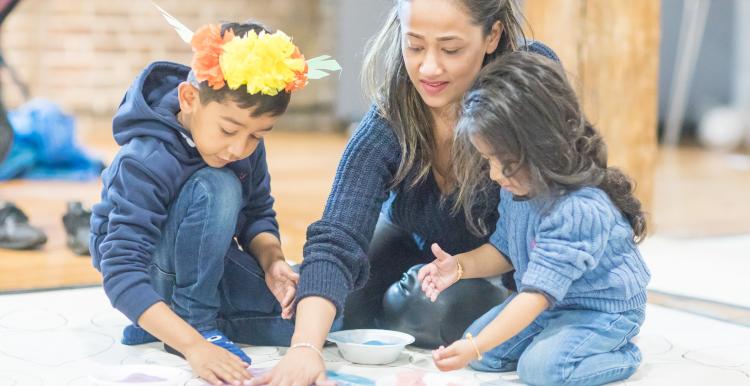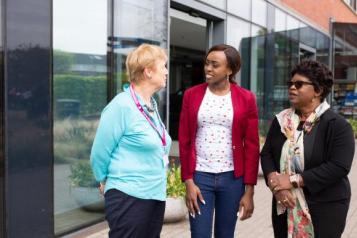NHS help to try to get pregnant – tell us what you think

How you can help
NEL CCG want to hear what you think about the proposed changes. You can visit the website – www.northeastlondonccg.nhs.uk/fertility – to read the engagement document, proposed new policy and supporting documents, and to fill in the online survey by 11.59pm on 22 August 2022.
NEL CCG are particularly interested in hearing from people who have experienced fertility problems, and who are from under-represented groups that are less likely to have their voices heard by decision-makers – this includes Black and minority ethnic people and the LGBTQIA+ community.
NEL CCG are also holding a series of online events for the public to find out more and ask questions. The events are open to anyone living in North East London, so please encourage people in your networks to attend, if relevant. Dates and details of how to book a place are available on their website.
Why do we want to update our fertility policy?
NEL CCG want to make it so that wherever you live in north east London you are able to have the same fertility treatment, such as IVF – this is not currently the case. At the moment there are five different fertility policies in north east London, as they were created when there were separate CCGs in the area. We also want to make the policy fairer and closer to the latest national guidelines and best practice, while recognising the variety of fertility situations and needs today.
The aim of the new policy is not to reduce the treatments that are funded or who is eligible to have them. What NEL CCG are proposing is likely to increase the amount of treatment you can have, depending on where you live, and improve access to some treatments. Partners need to make best use of NHS money given the increasing needs of our population and competing demands for resources. The proposals set out here will require increased investment, but we believe the policy addresses inequalities across north east London and is fairer.
What does our proposed new policy cover?
NEL CCG have used the latest national clinical guidelines from the National Institute for Health and Care Excellence (NICE), treatment techniques, research and best practice to develop the proposed new policy. Clinicians, including GPs and fertility experts have also helped to shape it.
The proposed new policy covers a number of treatments and eligibility criteria, as well as fertility preservation. The main areas where we are proposing changes to the current fertility policies are:
- Number of IVF cycles the NHS will fund depending on the age of the woman or person trying to get pregnant. IVF is a treatment where eggs are collected and fertilised with sperm in a laboratory to create embryos. These are then put into the womb to try to grow and develop.
- Funding of intrauterine insemination (IUI) for certain people. IUI is a type of artificial insemination when the better-quality sperm are separated out and this sperm is then injected directly into the womb.
- Funding of treatment to help you try to get pregnant using donor eggs/sperm based on certain criteria.
- The length of time the NHS funds the storage of eggs, embryos or sperm for people who need to have a treatment or have a condition which might make them infertile in the future, also called fertility preservation.
- Ovarian reserve criteria. This is the number and quality of eggs remaining in the ovaries which is measured by tests to predict how many eggs might be produced during IVF.
The proposed new policy is for both individuals and couples with a fertility problem regardless of their sexual orientation, gender identity or relationship status, and is intended to apply to people who live in Barking and Dagenham, City of London, Hackney, Havering, Newham, Redbridge, Tower Hamlets, and Waltham Forest.


